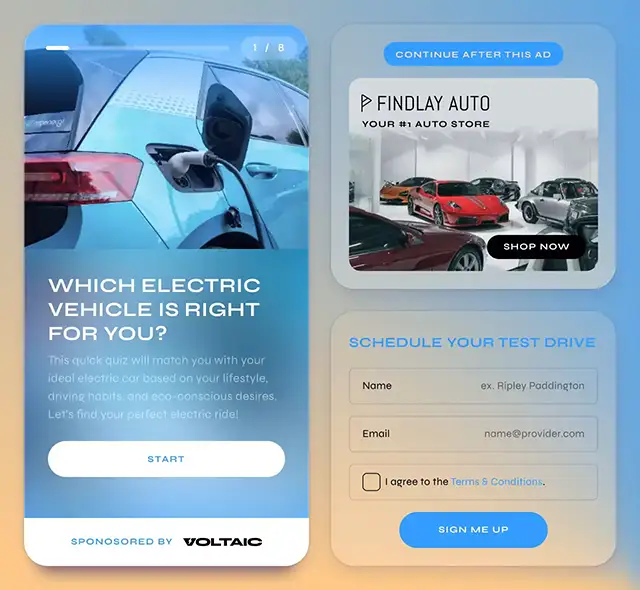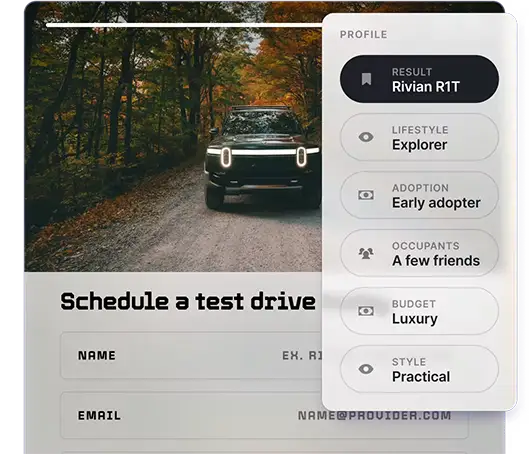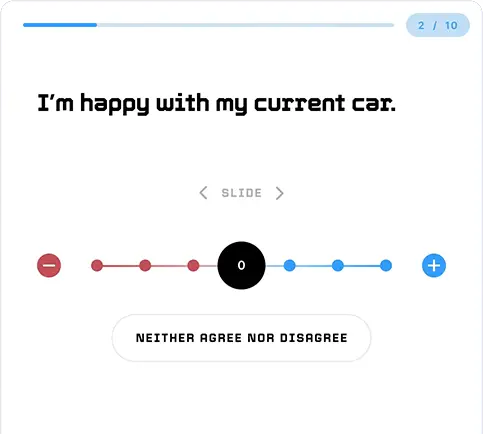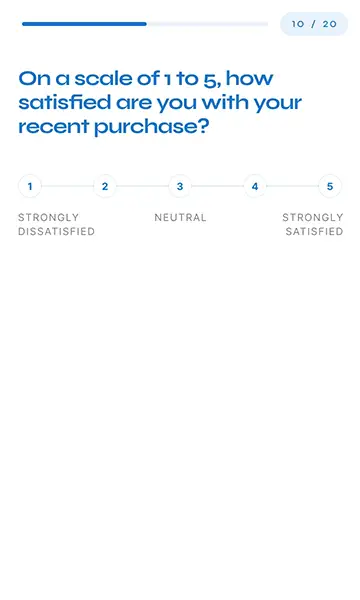
Solutions
Grow your business
Monetize Riddle’s quizzes and interactive content to grow and develop your business.

How Riddle can help grow your business
As well as engaging users and learning more about them, Riddle can monetize your content too.
Use Riddle’s interactive content to maximize your ad space, make sponsored content and generate better leads.

How Riddle can help your business today
Create sponsored content
Create sponsored content such as advertorials and custom ad campaigns with Riddle to increase conversions.

Monetize content with embedded ads
Embed banners or video ads, and integrate your ad server into Riddle to enhance your marketing content.

Generate better leads
Leverage Riddle at each point of the sales funnel to generate high-quality leads and convert more new customers.

Get valuable customer feedback
Use Riddle’s surveys and polls to get customer feedback that will help improve your content and brand experience.

What our clients say


Choose from over 15 interactive content formats
Try it for freePersonality quizzes

Quizzes

Sponsored content

Surveys

Polls

Product recommendations

Competitions & raffles

Game predictors

Leaderboards

Listicles

Personality quizzes

Quizzes

Sponsored content

Surveys

Polls

Product recommendations

Competitions & raffles

Game predictors

Leaderboards

Listicles

GDPR & CCPA compliant
Riddle meets global privacy protection requirements, keeping customers' personal data safe and secure.
Want to monetize your website content?
Get a 14-day free trial. All features unlocked. No payment details needed.